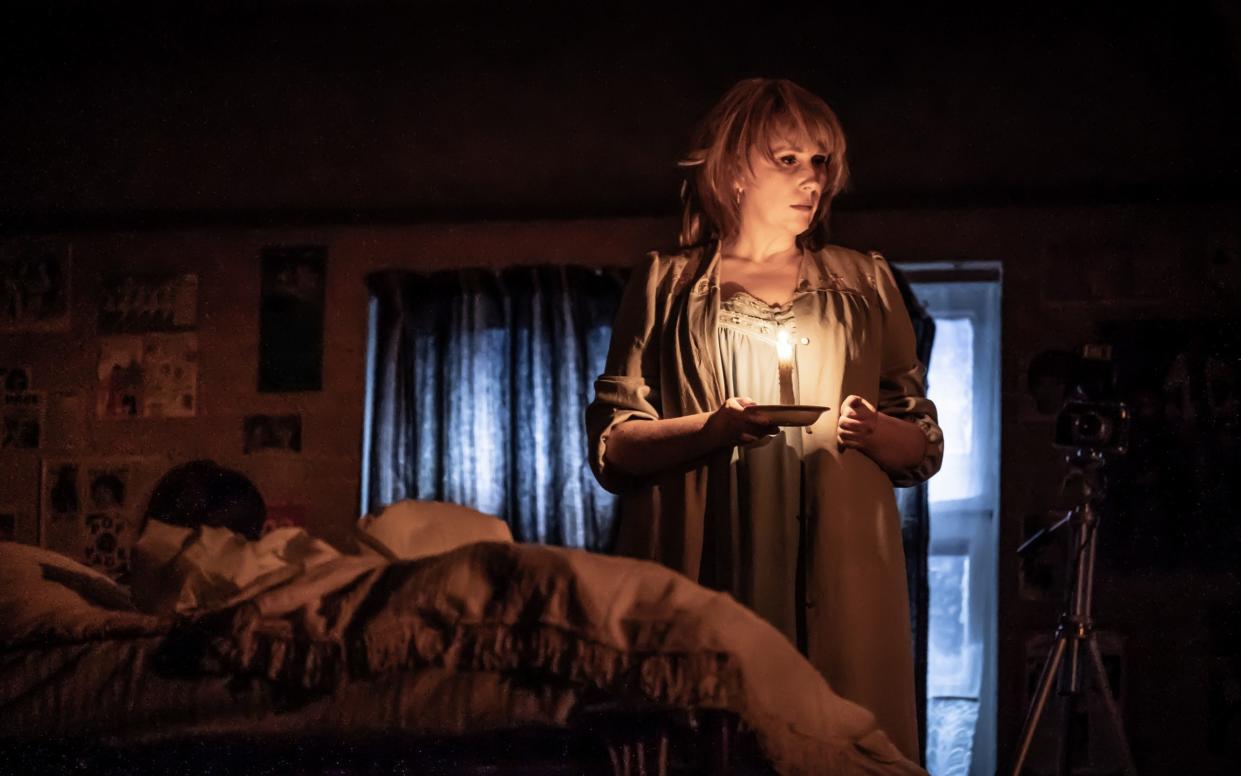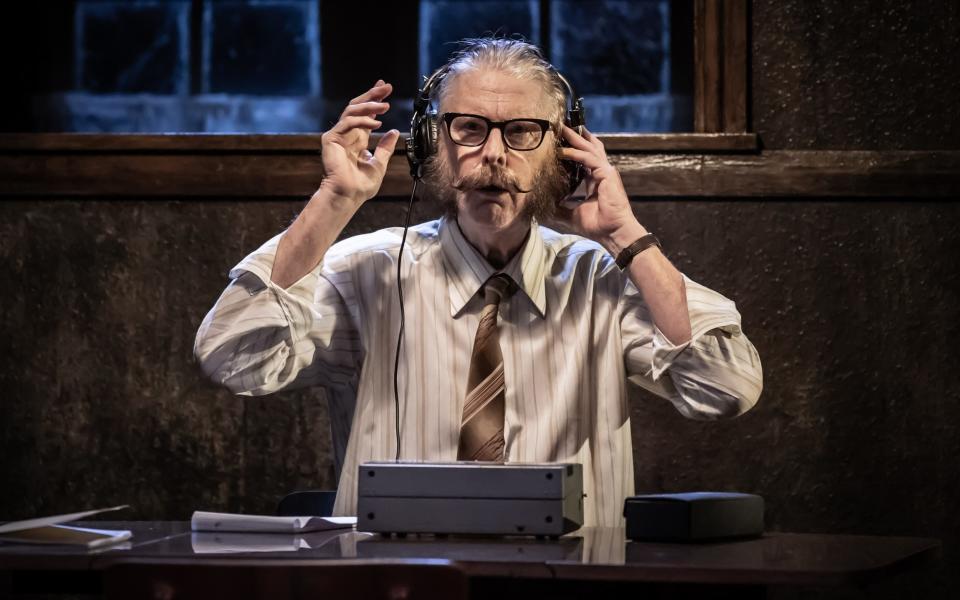The Enfield Haunting: spookily short of spills and thrills

- Oops!Something went wrong.Please try again later.
- Oops!Something went wrong.Please try again later.
- Oops!Something went wrong.Please try again later.
Starring Catherine Tate and David Threlfall, this short, occasionally sharp but insufficiently shocking new play about the infamous case of a reputedly poltergeist-beset council house in late-1970s Enfield was supposed to open in December. But owing to cast illnesses it’s now the first major West End event in the barren month of January. I wish I could report that it’s worth emerging from your duvet to investigate, but it’s enough to make you repeat-jab the snooze-button.
The subject exerts an undying fascination – witness multiple explorations of the spooky goings-on at 284 Green Street, centring on two young sisters, Janet and Margaret Hodgson, the former snapped apparently levitating in her bedroom and also supposedly subject to freaky possession, issuing growling utterances. There have been a heap of documentaries (most recently on Apple TV), a BBC mockumentary, a Sky drama series (with Timothy Spall) and horror film The Conjuring 2.
While the story is a known commodity, a theatrical treatment at least offers the potential to give people a discombobulating sense of what it might have been like to be in situ. And writer Paul Unwin (who co-created Casualty) had the benefit of meeting a man who was there: the late ghost-hunter Guy Lyon Playfair who, despite being aware that the girls practised hoaxes, couldn’t explain everything he encountered.
Playfair’s associate in psychic investigation Maurice Grosse (who died in 2006) is, along with a neighbour “Uncle Rey”, one of a number of male intruders on the family turf here, with Tate’s harassed single-mum Peggy torn between wanting to be left alone, in all senses, and craving support. Grosse – played with an enigmatic, rather creepy air of continual almost predatory curiosity by Threlfall – has resolved to rig up motion-sensitive cameras in the main bedroom. And these yield some of the earliest, most incandescent moments of startlement – we get flash-bulb glimpses of Ella Schrey-Years’ moody, ghost-pale Janet in successive elevated and gymnastic postures, as if propelled by an unseen force to the door.
There’s not quite enough where that came from. Unwin moves swiftly into the realm of overt psychological insinuation; there’s talk of the girls’ absent, possibly abusive father, a manifest need in Grosse to treat Janet as the embodiment of (and possible conduit for) his own deceased daughter (also called Janet), and an 11th hour revelation about the previous, possessive occupier of the house.

These elements part-explain a succession of sinister, teasing masculine apparitions which, along with billowing curtains, flickering lights and shunted furniture, give a whiff of the supernatural. In theory the play, less a whodunnit than a whoisdoingit, straddles the threshold between the rationally explicable and the unfathomable, but it never quite crosses over from the watchable into the spine-tinglingly compelling.
The cast, directed by Angus Jackson, are admirably committed; Lee Newby’s domestic set duly, darkly oppressive. If Tate, keeping a careworn maternal lid on despair and hysteria, sometimes looks uncomfortable in the wrong way, that may owe something to the flat, oddly insubstantial writing. Was I bovvered? Not nearly enough.
Until March 2; enfieldhauntingplay.com

